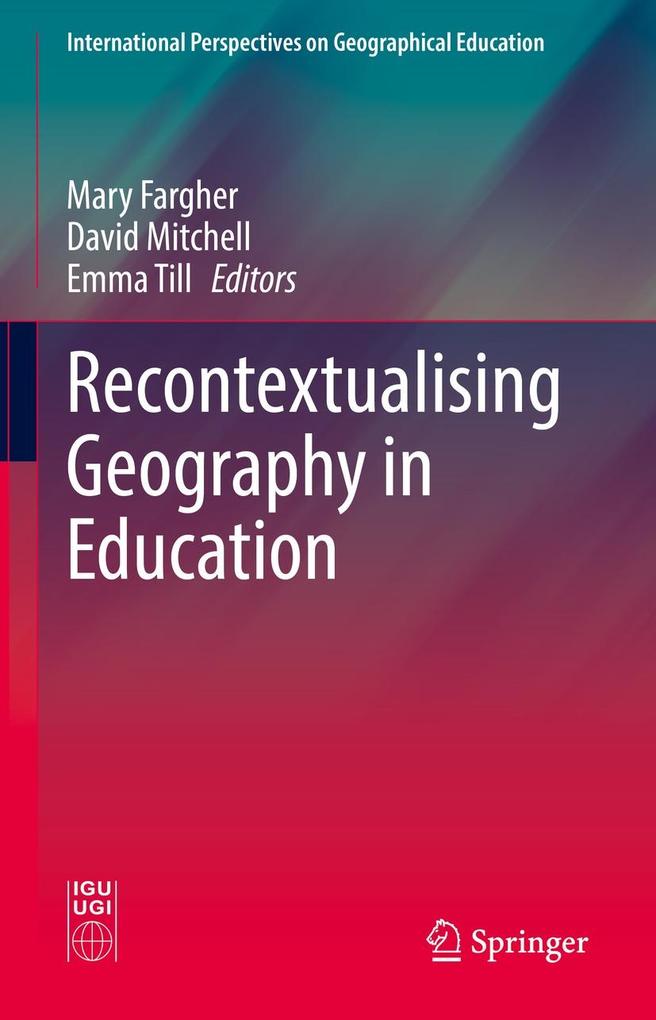Bücher versandkostenfrei*100 Tage RückgaberechtAbholung in der Wunschfiliale

Sofort lieferbar (Download)
In this book international geography educators discuss the ways in which geographical knowledge is recontextualised in schools and consider effective approaches to facilitate, improve and advance geography education in research and practice. It addresses key topics in recontextualising geography such as the epistemic relationships between the university discipline and the school subject, designing and evaluating the geography curriculum, the role of students in the transformation of knowledge in the classroom and selecting and transforming geographical content knowledge for the primary school curriculum. At an international level, the contributors and editors bring together an advanced collection of research and discussion surrounding the opportunities and challenges of recontextualising geography in education. The book is of interest to geography educators internationally, including academics at universities, teachers in schools, and professional geographers with an interestin education.
Inhaltsverzeichnis
Chapter 1. Introduction: Why Recontextualise Geography in Education? Part I: Theorising Recontextualising Geography. - Chapter 2. The Challenge of Recontextualisation and Future 3 Curriculum Scenarios : An Overview. - Chapter 3. Recontextualisation: Selecting and Expressing Geography s `big ideas . - Chapter 4. Questioning Recontextualisation: Considering Recontextualisation s Geographies. 0 Chapter 5. Reflecting on Knowledge and Primary Geography. - Chapter 6. A Call to View Disciplinary Knowledge through the Lens of Geography Teachers Professional Practice. - Chapter 7. The Role of Students in the Recontextualisation and Transformation of Powerful Knowledge: A Study of 6th form Geography Students. - Chapter 8. Practising Powerful Geographical Knowledge to Develop Understanding of Interdependence. - Chapter 9. Recontextualisation continued: Designing and Evaluating Conceptual Learning in Geography Lessons. - Chapter 10. Teaching about Space and Place The Example of Everyday Geographies of Young People Living in the Slums of Nairobi, Kenya. - Chapter 11. From Fast Fashion to Slow Fashion Raising Awareness of Young People for Sustainable Production and Consumption. - Chapter 12. Reflecting on Recontextualising Geography in Education.
Produktdetails
Erscheinungsdatum
10. November 2021
Sprache
englisch
Seitenanzahl
190
Dateigröße
4,45 MB
Reihe
International Perspectives on Geographical Education
Herausgegeben von
Mary Fargher, David Mitchell, Emma Till
Verlag/Hersteller
Kopierschutz
mit Wasserzeichen versehen
Produktart
EBOOK
Dateiformat
PDF
ISBN
9783030737221
Entdecken Sie mehr
Bewertungen
0 Bewertungen
Es wurden noch keine Bewertungen abgegeben. Schreiben Sie die erste Bewertung zu "Recontextualising Geography in Education" und helfen Sie damit anderen bei der Kaufentscheidung.








